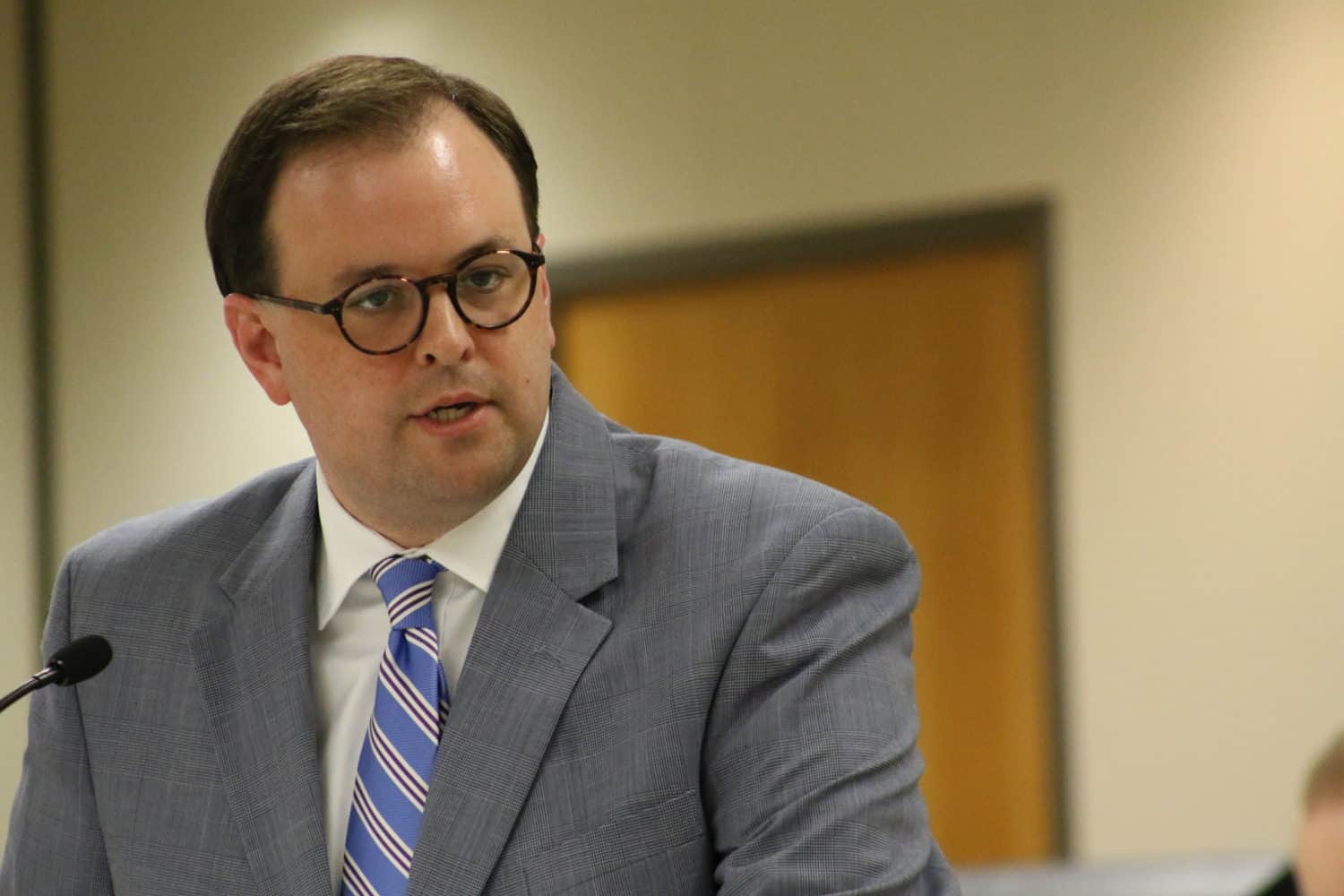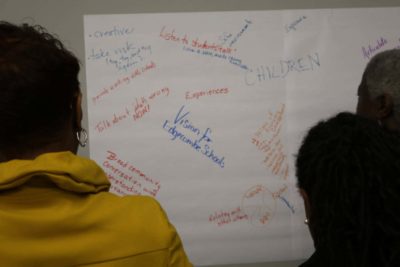A bill under consideration by the Senate education committee would widen the possible pathways to becoming a teacher.
Sen. Chad Barefoot, R-Franklin and Wake, the primary sponsor of Senate Bill 599, said the legislation opens up more options for people interested in becoming teachers. The measure would allow organizations outside of colleges or universities to offer educator preparation programs.
“Under the old system, you had to be an IHE, an institution of higher education to prepare teachers,” Barefoot said. “What the bill does is it says you no longer have to be that, but you have to meet this set of criteria.”
The bill establishes the Professional Educator Preparation and Standards Commission, a governing body made up of teachers and administrators from all levels of the educational system that would make recommendations regarding educator preparation programs to the State Board of Education. The State Board would have the final say on what standards the programs would have to meet and whether or not they meet those standards.
Sen. Ronald Rabin, R-Harnett, Johnston, and Lee, expressed concern about this organizational structure.
“I get concerned, personally, because if organizations aren’t exactly right, the best of intentions aren’t very often executed the way we would like,” Rabin said last week when the committee was first introduced to the bill.
And Tuesday, Rabin emphasized his worry that another commission would confuse things rather than make them more efficient.
“The problem I have is, we have in this state 326 boards, commissions, and all of that,” Rabin said. “We have 44 that deal with education, four of which are commissions, and when we do things like this, it might be a good idea, rather than creating another entity, which creates more and more layers of government and management, we look for places to hone in without creating another one… It just gets to be a lack of organization to get the job done statewide.”
Barefoot said he has seen a greater number of programs outside of colleges and universities requesting exemptions under current law. Teach for America, he said, currently operates under an exemption, and Teachers for Tomorrow is seeking a similar status.
“They’re having to come and basically ask for exemptions,” Barefoot said. “So my idea was to create an even playing field for everyone.”
He said he wants to make sure the highest quality programs are able to train the state’s teachers — and those are not only ones offered by colleges or universities. Western Governors University, which offers an online teacher preparation program, was ranked first in the country by the National Council on Teacher Quality. Barefoot said that’s another example of the options this legislation would allow.
“You’re starting to see a lot of innovation in teacher preparation outside of traditional methods,” Barefoot said. “That’s one piece.”
The other piece, he said, is the need for a greater number of qualified teachers. “The traditional IHE’s just aren’t preparing enough teachers to keep up with the workforce,” he said.
Educator preparation programs outside the traditional framework could also help prospective teachers who do not live near a college or university, Barefoot said.
The legislation would also change the process for those in other professions who are interested in teaching. Under the bill, the process typically called “lateral entry” would be changed to “residency licensure.”
Residency licensure would require participants to have some training after being hired by a local school district and before actually teaching in the classroom. After the participant completes those requirements, he or she could begin teaching and any educator preparation program.
Under current law, if an individual has a bachelor’s degree and switches to teaching, he or she can be hired and start teaching before they complete coursework and training.
Sen. Erica Smith-Ingram, D-Bertie, Chowan, Edgecombe, Hertford, Martin, Northampton, Tyrrell, and Washington, said she thought the bill’s timeline for lateral entry teachers to complete a preparation program was too quick. The bill would give these teachers a one-year residency license with one year-long renewal.
“It is difficult to be a first-year educator,” Smith-Ingram said. “You’re teaching all day, you’re involved in after-school activities to engage the students and the community, and you’re taking coursework.”
Smith-Ingram introduced an amendment, which failed, that would have changed the timeline to two years with one year-long renewal. She said a crunched timeframe could detract interested professionals and cause shortages.
“Not only do you have to fit in these courses and this coursework into your day after working full-time, but you also have to be able to pay for these certification courses that you need to take,” Smith-Ingram said. “And some people just can’t do it within one year.”
Barefoot said he expects this legislation — modeled after a measure in Texas — to ease the process of completing a preparation program while teaching. He pointed to a new one-year online program for professionals interested in teaching offered by UNC-Chapel Hill and N.C. State University. More options and online availability of courses, he said, will speed things up and help with convenience.
“I think the residency licensure track is going to be a faster, more efficient, and more focused preparation for teaching than the current lateral entry system,” he said. “I think, ultimately, students are going to benefit more from it and the people who are engaged in it will benefit more from it.”
An amendment by Sen. Joyce Waddell, D-Mecklenburg, and two others from Smith-Ingram failed during the committee meeting Tuesday.
Waddell’s amendment would have given teachers with 40 years of experience, instead of 50, a “lifetime license” that never has to be renewed. She said that even if teachers don’t have to renew their license, they are constantly learning through required professional development.
But Republican members, who comprise the majority of the committee and both the House and Senate, said teachers, even at that level, should not be exempt from the state’s requirements.
“Technology changes so fast, that I think that ten-year gap is an important thing,” Rabin said.
Smith-Ingram’s other two amendments would have lowered the GPA requirement for applicants of educator preparation programs and expanded on middle and high school digital literacy.



